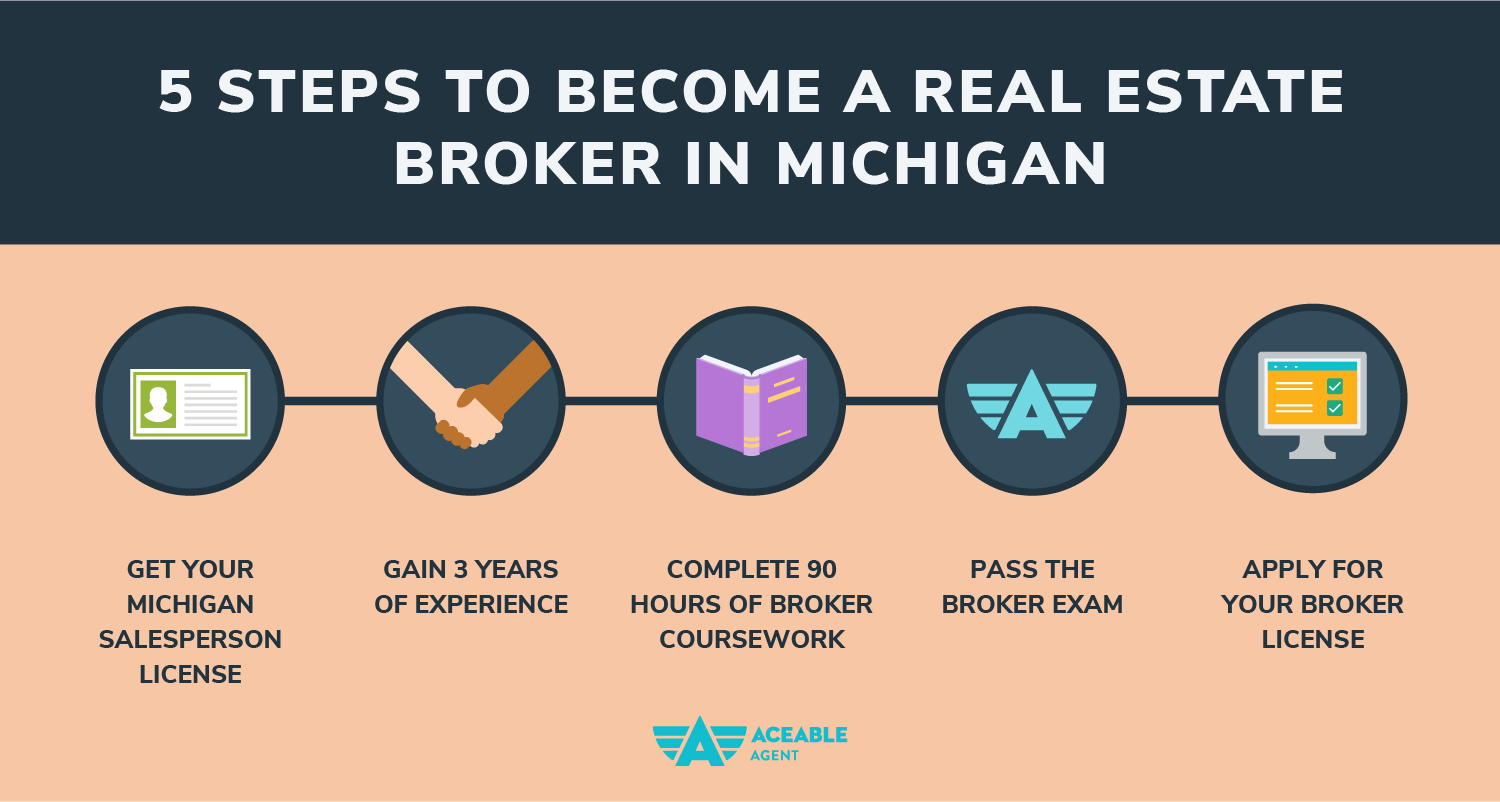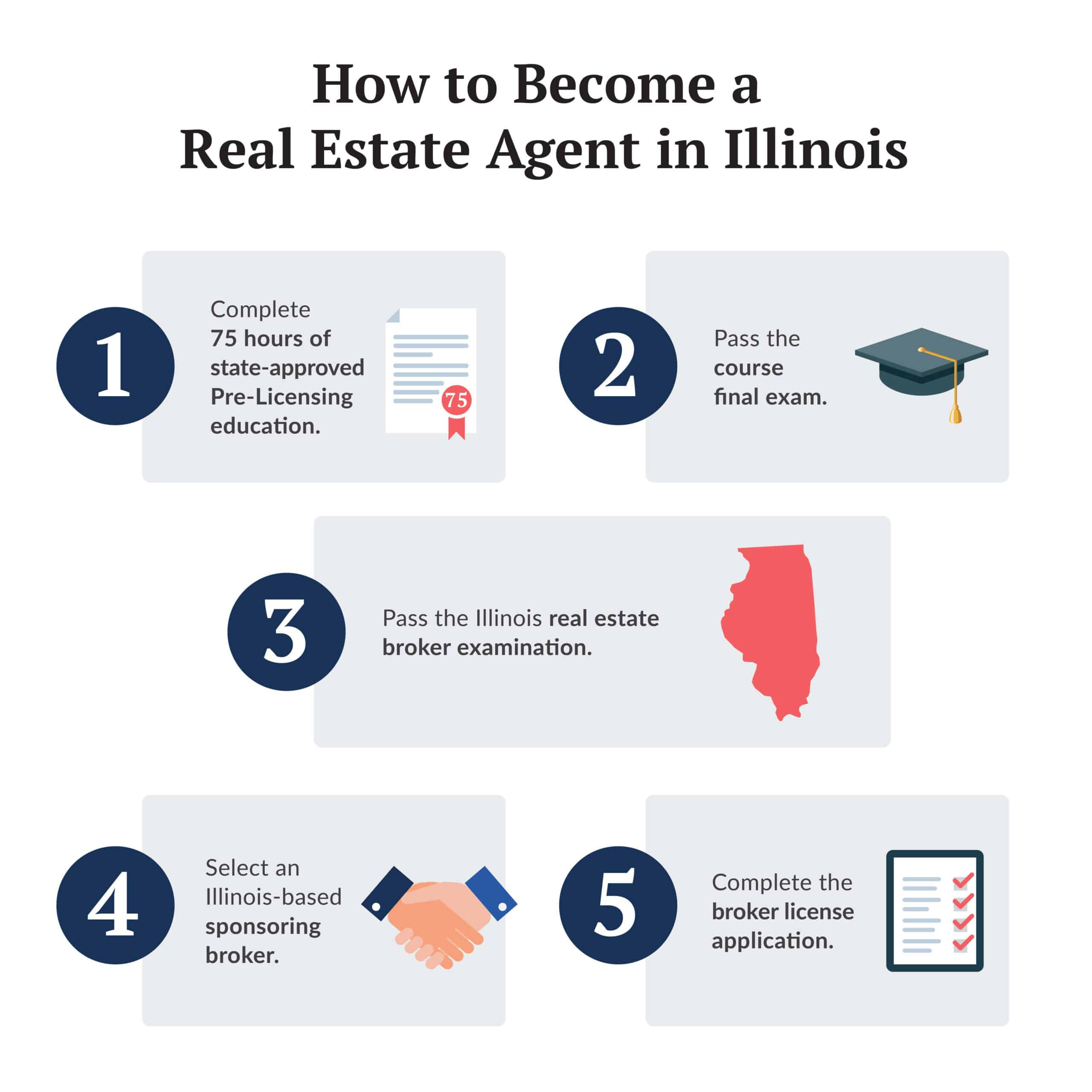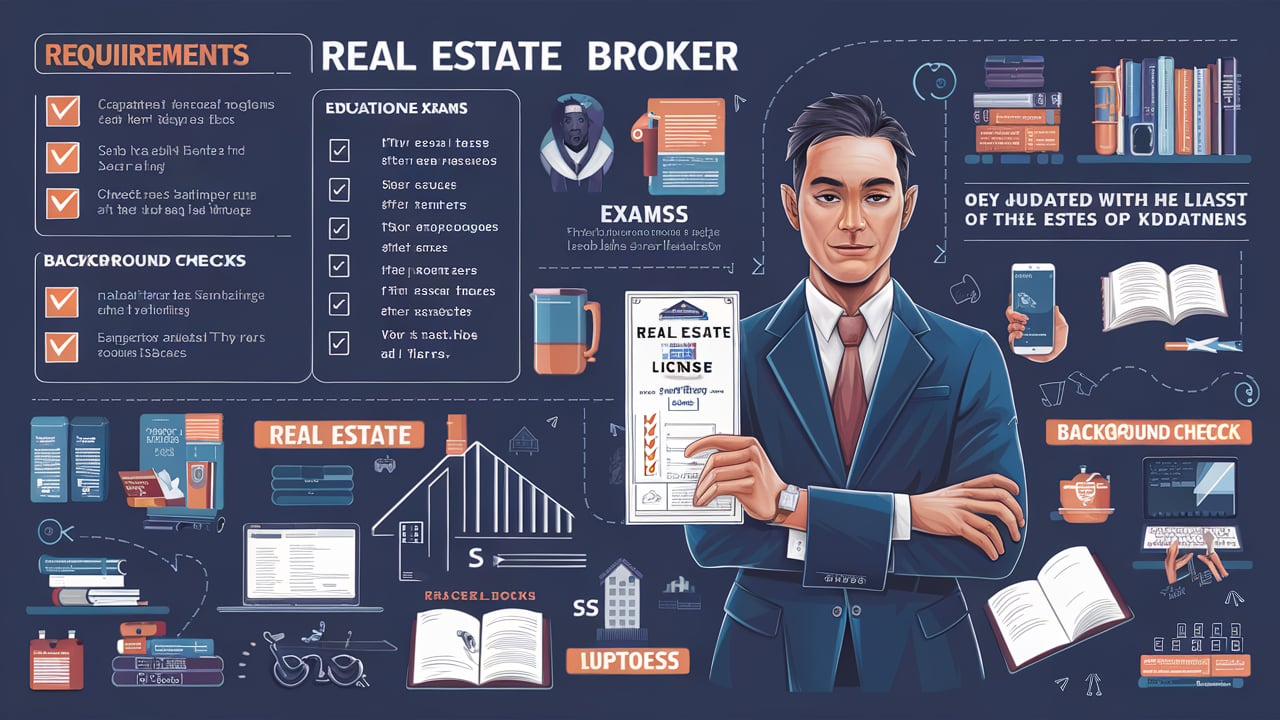To become a real estate broker in Texas, you must meet specific licensing requirements set by the state, including completing educational courses and passing the broker exam. Additionally, you need to have qualifying experience in real estate transactions.
These steps are essential to obtaining your Texas real estate broker license and starting a successful career in the real estate industry. By following the state regulations and fulfilling all necessary criteria, you can establish yourself as a licensed real estate broker in Texas and access various opportunities within the market.
Understanding the intricacies of the licensing process is crucial for aspiring brokers to navigate the path towards achieving their professional goals.
Understanding Real Estate Broker Licensing Requirements
To become a licensed real estate broker, individuals must submit an application, pay a fee, and provide fingerprints to the state. Meeting qualifying experience requirements and passing the Texas Real Estate Exam are necessary steps in obtaining a broker license.
Additional steps may be required to become a broker in other states, such as Florida.
Eligibility
To become a real estate broker, you must meet certain eligibility criteria such as having a valid real estate agent license.
The application process involves submitting an application, application fee, and fingerprints to the state real estate regulatory body.
Brokers typically need to complete advanced real estate courses and possess significant industry experience.

Credit: investfourmore.com
Eligibility Criteria
When it comes to becoming a real estate broker in Texas, there are specific eligibility criteria that individuals must meet. These criteria ensure that brokers have the necessary skills and qualifications to provide quality service to their clients. The eligibility criteria include age requirement and experience requirement. Let’s explore each of these requirements in detail.
Age Requirement
To be eligible for a real estate broker license in Texas, you must be at least 18 years old. This age requirement ensures that individuals have reached the legal age to enter into contracts and engage in business transactions. It ensures that brokers are capable of handling the responsibilities that come with the profession.
Experience Requirement
Along with the age requirement, aspiring real estate brokers must fulfill an experience requirement. The Texas Real Estate Commission (TREC) requires a minimum of four years of active experience as a licensed real estate agent to qualify for a broker license. This experience requirement helps to ensure that brokers have a solid understanding of the real estate industry and have gained valuable knowledge and skills through their previous work as an agent.
In addition to the experience requirement, applicants must also submit a qualifying experience report to TREC, providing detailed information about their real estate experience. This report helps TREC assess the applicant’s qualifications and determine their eligibility for a broker license.
Meeting the eligibility criteria is essential for individuals who wish to pursue a career as a real estate broker in Texas. By ensuring that brokers meet these requirements, the state aims to maintain professionalism and protect the interests of both brokers and clients.
Application Process
Applying for a real estate broker license involves several key steps to ensure compliance with state regulations. The application process encompasses the following:
Submission Of Application
Submit the completed application form along with all required documents to the designated state regulatory authority.
Background Check
Undergo a comprehensive background check to verify your eligibility for a real estate broker license.
Application Fee
Pay the application fee as specified by the licensing authority to process your application.

Credit: www.aceableagent.com
Educational Requirements
To become a real estate broker in Texas, applicants must complete 270 hours of qualifying education, which includes 30 hours each of Real Estate Brokerage and Real Estate Law. Additionally, candidates must have at least four years of active experience as a licensed real estate sales agent.
Pre-licensing Courses
Becoming a real estate broker in the state of Texas requires completing pre-licensing courses. These courses provide the essential knowledge and skills needed to successfully navigate the real estate industry. Pre-licensing courses cover a wide range of topics including real estate law, ethics, property management, contracts, and finance. It is important to choose a reputable real estate school that offers comprehensive pre-licensing courses to ensure you receive the best education possible.
Exam Preparation
Once you have completed the pre-licensing courses, it is time to prepare for the real estate broker exam. This exam is administered by the Texas Real Estate Commission (TREC) and is designed to test your knowledge and understanding of the real estate industry. To increase your chances of passing the exam, it is recommended to participate in exam preparation courses. These courses focus on reviewing key concepts, practicing exam questions, and providing helpful tips and strategies for success. Exam preparation courses can greatly enhance your confidence and readiness for the licensing exam.
Continuing Education
Obtaining a real estate broker license is not the end of your educational journey. As a licensed broker, you are required to complete continuing education courses to stay updated on industry trends, laws, and regulations. The Texas Real Estate Commission mandates that brokers complete a certain number of continuing education hours within a specific timeframe. Continuing education courses can be taken online or in-person and cover a variety of topics such as real estate ethics, fair housing, contract law, and risk management. By staying informed and educated, you can provide the best service to your clients and maintain your broker license.
Exam And Licensing
Texas Real Estate Exam
Before becoming a licensed real estate broker in Texas, individuals are required to pass the Texas Real Estate Exam, which is administered by the Texas Real Estate Commission (TREC).
Licensing Timeline
The timeline for obtaining a real estate broker license in Texas involves completing the necessary education, gaining the required experience, and successfully passing the state exam. Individuals must also submit the necessary paperwork and meet other licensing requirements, which can vary depending on the applicant’s qualifications.
Licensing Authority
The Texas Real Estate Commission (TREC) is the licensing authority responsible for overseeing the process of becoming a licensed real estate broker in Texas. TREC ensures that individuals meet the state’s licensing requirements and adhere to the regulations set forth for practicing real estate brokerage in the state.
Comparison With Other States
When it comes to real estate broker licensing, understanding the specific requirements of each state is essential. Each state has its own set of criteria and procedures for obtaining a broker’s license, which can vary significantly. In this section, we’ll take a closer look at the real estate broker licensing requirements in Florida and how they compare to those of Texas.
Florida Broker Licensing Requirements
Before diving into the comparison with Texas, let’s first examine the specific licensing requirements for real estate brokers in Florida. Individuals looking to become licensed real estate brokers in Florida must submit an application, application fee, and fingerprints to the state. Additionally, they are required to meet certain qualifying experience reports and complete a pre-licensing course from an approved provider.
Texas Broker Licensing Requirements
In contrast, the process of obtaining a real estate broker license in Texas involves different steps and criteria. Texas requires individuals to fulfill specific licensing requirements, including a background check, completion of a pre-licensing course, and meeting the necessary work experience criteria. Moreover, they need to pass the broker licensing exam administered by the Texas Real Estate Commission (TREC).
Challenges And Tips
Becoming a real estate broker comes with its set of challenges and requires careful navigation. Below are the H3 headings that delve into Challenges of Licensing Process and provide valuable Tips for Success in obtaining your real estate broker license.
Challenges Of Licensing Process
1. Comprehensive Study Material
2. Time-Intensive Application Process
3. Stringent Examination Requirements
Tips For Success
- 1. Enroll in an Accredited Real Estate School for Proper Guidance.
- 2. Utilize Online Resources for Mock Exams and Practice Tests.
- 3. Seek Mentorship from Experienced Real Estate Brokers.
- 4. Stay Updated with State Regulations and Requirements.
Career Opportunities
If you have a passion for real estate and enjoy working with people, pursuing a career as a real estate broker can offer you a fulfilling and rewarding path. As a real estate broker, you will have the opportunity to guide clients through the process of buying, selling, and renting properties. This role involves a range of responsibilities, including market research, property valuation, negotiating deals, and ensuring legal compliance.
Average Salary
Real estate brokers in Austin, Texas, have the potential to earn a competitive salary. According to Indeed, the average annual salary for a real estate broker in Austin is around $60,000. However, it’s important to note that this figure can vary based on factors such as experience, location, and the size of your client base. With the right skills and expertise, real estate brokers have the opportunity to increase their earnings significantly over time.
Opportunities For Growth
For ambitious individuals, a career as a real estate broker offers ample opportunities for personal and professional growth. As you gain experience and establish a solid reputation in the industry, you can expand your client network and take on more challenging projects. Some brokers choose to specialize in specific types of properties or niche markets, such as luxury homes, commercial properties, or investment properties. This specialization can open doors to higher-value transactions and increase your earning potential.
Moreover, real estate brokers can also explore avenues for growth by expanding their services. This may include offering property management services, real estate consulting, or even starting their own brokerage firm. With the right combination of knowledge, skills, and business acumen, the possibilities for growth in the real estate industry are virtually limitless.

Credit: www.mbitiontolearn.com
Frequently Asked Questions
What Is Required To Be A Real Estate Broker In Texas?
To become a real estate broker in Texas, you need to complete 270 classroom hours, pass the state exam, and have at least 4 years of experience as a licensed real estate agent. Additionally, you must submit an application and undergo a background check.
How Long Does It Take To Become A Broker In Texas?
Becoming a broker in Texas takes around 4 years. This includes gaining experience and completing the required education.
How Hard Is It To Get A Real Estate License In Texas?
Getting a real estate license in Texas isn’t too difficult. You’ll need to complete a pre-licensing course, pass the state exam, and submit an application to the Texas Real Estate Commission. The entire process can take a few months.
How To Become A Broker In Florida?
To become a broker in Florida, submit an application, fee, and fingerprints to the state. Provide qualifying experience.
Conclusion
To wrap up, navigating real estate broker licensing requirements can be complex but rewarding. Research, dedication, and guidance are key. Compliance with state regulations is vital. Stay informed and take the necessary steps to achieve your real estate broker license successfully.
Best of luck on your journey!

Elaine C. Durham is a distinguished figure in the domain of new business investments, recognized for her expertise and strategic acumen in navigating the dynamic landscape of emerging ventures. With a robust educational background and a wealth of experience, Elaine has become a trusted authority in the field, contributing valuable insights to the realm of investment strategies for nascent businesses. Her professional journey is marked by a keen ability to identify promising opportunities, coupled with a shrewd understanding of market dynamics and risk management. Known for her innovative approach and successful endeavors, Elaine C. Durham stands as a beacon for entrepreneurs and investors alike, offering a wealth of knowledge on fostering growth and sustainability in the ever-evolving world of new business investments.


